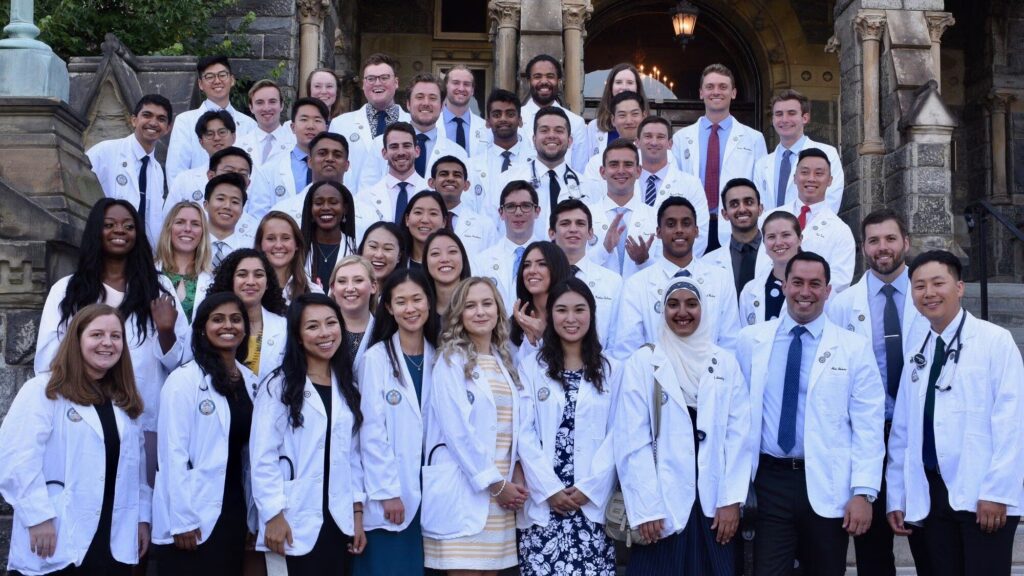When it comes to prestigious medical schools, Georgetown Medicine stands out not only for its academic excellence but also for its unique approach to the interview process. Have you ever wondered why Georgetown Medicine hands out so many interviews, particularly to freshers? The answer lies in the school’s commitment to a holistic admissions process designed to evaluate more than just grades and test scores. In this article, we will delve into the reasons why Georgetown Medicine values its interview process so highly and why it’s a critical part of their selection strategy.
Understanding Georgetown Medicine’s Admissions Process

Georgetown University School of Medicine (Georgetown Medicine) follows a comprehensive admissions process aimed at finding the best candidates for its program. This process evaluates applicants on various factors such as academic achievements, standardized test scores (like the MCAT), research experience, clinical experience, and extracurricular activities.
However, Georgetown Medicine doesn’t stop there. The interview process plays a pivotal role in the final decision-making, serving as an essential part of the school’s holistic approach to admissions. Georgetown is known for considering not just the intellectual capacity of its applicants but their personal characteristics and ability to contribute to the medical community. This is where the interview process becomes crucial, as it gives the admissions committee a chance to see beyond the application.
Why Georgetown Medicine Prioritizes Interviews
So, why does Georgetown Medicine prioritize interviews so highly? The answer is simple: interviews provide valuable insight into a candidate’s personality, character, and communication skills. While academic achievements are important, Georgetown recognizes that future doctors must possess qualities like empathy, critical thinking, and the ability to communicate effectively.
Through interviews, Georgetown Medicine can assess how candidates respond to real-world medical situations, handle pressure, and display interpersonal skills. These attributes cannot be fully measured by test scores alone, making the interview an invaluable component of the admissions process.
Georgetown’s Interview Culture
What makes Georgetown’s interview culture unique? Unlike many medical schools that rely heavily on panel interviews or multiple-choice assessments, Georgetown often emphasizes a more personalized approach. The interview process is known for being conversational and engaging, allowing candidates to demonstrate their passion for medicine and their understanding of what it means to be a physician.
Georgetown also puts a strong emphasis on diversity and inclusivity. The interviews are designed to capture a broad range of perspectives and experiences, ensuring that the students admitted to the program are not just academically capable but also diverse in their backgrounds, viewpoints, and life experiences.
Insights into Interviewing Freshers
Georgetown Medicine is also known for interviewing a significant number of freshers, or new applicants. You may wonder, why are freshers more likely to be called in for interviews compared to applicants with more experience?
The answer lies in Georgetown’s commitment to identifying potential early on. Freshers, despite having limited experience, often bring a fresh perspective, untainted by years of conventional medical training. Georgetown sees this as an opportunity to shape future doctors from the ground up, providing them with the foundation and mentorship they need to thrive in the field of medicine.
Additionally, interviewing freshers allows the admissions committee to gauge enthusiasm, passion, and adaptability — qualities that are just as important as experience. Georgetown values the drive to learn and grow, and freshers are often seen as highly motivated candidates ready to take on the challenge of medical school.
How Interviews Help Georgetown Medicine Find the Right Fit
Ultimately, the interview process at Georgetown Medicine serves to help the school determine if a candidate is the right fit for the program. Georgetown understands that the medical field is not one-size-fits-all. Each doctor brings something unique to the table, and Georgetown seeks to admit individuals who will not only excel academically but also contribute meaningfully to the medical profession.
The interview process enables Georgetown to assess how candidates align with the values and mission of the school. Does the candidate have the necessary passion for patient care? Are they able to communicate complex ideas in an accessible way? Can they demonstrate critical thinking and problem-solving skills? These are the kinds of questions that Georgetown considers when evaluating candidates during interviews.
Conclusion
In conclusion, Georgetown Medicine’s interview process is a key component of its holistic admissions strategy. The school prioritizes interviews because they offer a unique opportunity to assess a candidate’s character, communication skills, and fit for the medical profession. By interviewing freshers and applicants with varying backgrounds and experiences, Georgetown ensures that its students are not only academically gifted but also equipped to thrive in the complex and ever-changing field of medicine.
If you’re applying to Georgetown Medicine, remember that the interview is your chance to show who you truly are beyond your grades and test scores. It’s an opportunity to let your passion for medicine shine and prove that you have what it takes to make a difference in the world of healthcare.
For more tips on applying to top medical schools, check out Medsniff.



